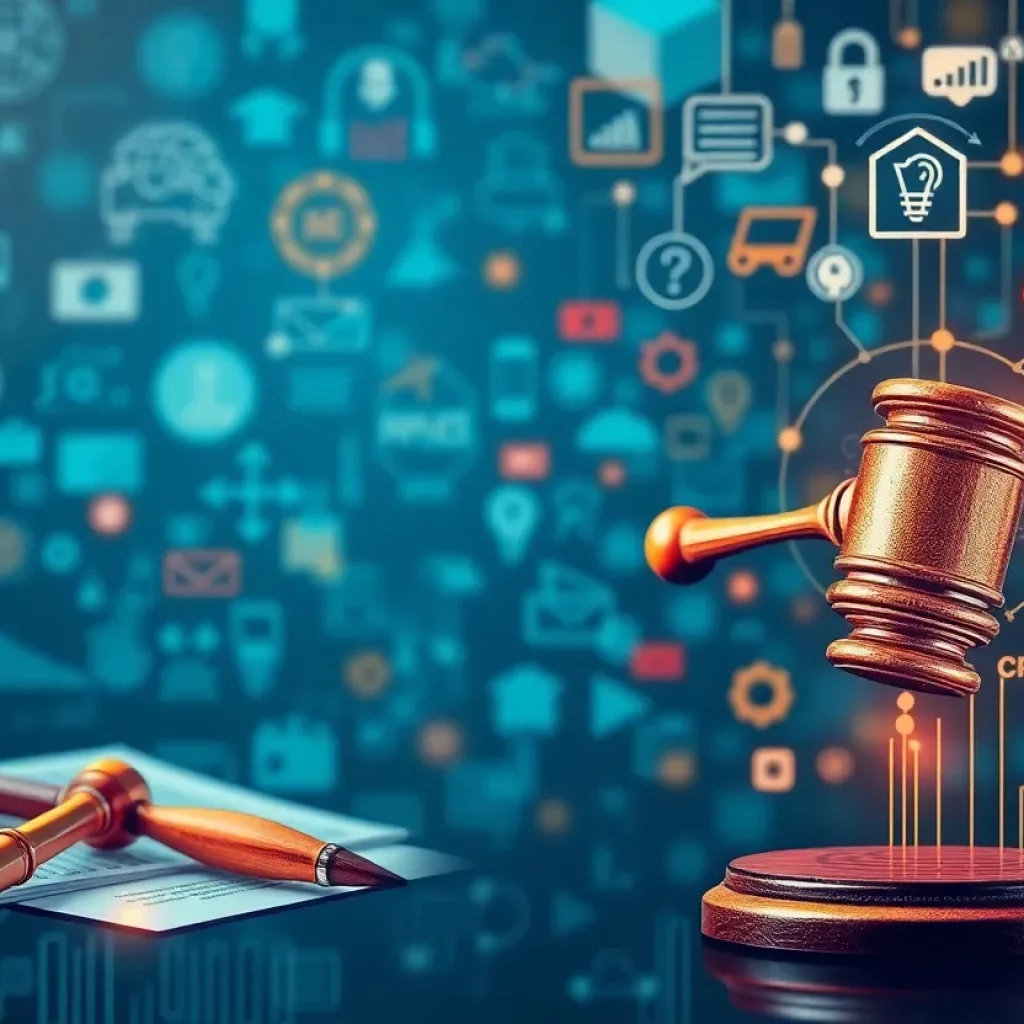News Summary
The recent dismissal of Shira Perlmutter as head of the U.S. Copyright Office has sparked significant debate about intellectual property rights, especially concerning the use of copyrighted materials in AI training. With fears of further job reductions in the Library of Congress, industry leaders are voicing their concerns about the dilemmas posed by AI and copyright law. As legal challenges loom, the tech community finds itself in a contentious debate over creator compensation and rights protection. The fallout from these changes could reshape the landscape of intellectual property law.
The Fallout from Leadership Changes in the Copyright Office
In a stunning development within the realm of intellectual property law, Shira Perlmutter has been dismissed from her role as the head of the U.S. Copyright Office. This abrupt termination, communicated via email by acting Librarian of Congress Robert Newlen, is raising eyebrows across the copyright community and beyond. It occurred in the wake of a revealing report by Perlmutter’s office, detailing serious concerns about the implications of utilizing copyrighted materials to train artificial intelligence systems.
Timing Is Everything
Perlmutter’s termination is strikingly timed, coming just two days after President Donald Trump made headlines by firing Carla Hayden, the Librarian of Congress who appointed Perlmutter in October 2020. Industry insiders are scrambling to make sense of these rapid moves, particularly in light of the 100-page document that raises questions around the potential infringement of creators’ rights if copyrighted materials are employed in generative AI.
Worries Among Copyright Office Employees
The shockwaves of this termination have rippled through the Library of Congress as employees express fear that further firings may follow. With the Trump administration’s track record of job reductions, many are understandably unsettled. Under the newly established Department of Government Efficiency (DOGE), the mandate to optimize federal functions through AI could threaten job stability within these agencies.
AI and the Intellectual Property Dilemma
The technology sector continues to argue that the use of copyrighted materials to create AI tools should be classified under the fair use provision. However, this perspective has sparked fierce debates, especially among creators advocating for fair compensation and permission when their works are used in AI development. As the American Federation of Musicians points out, these developments could endanger the very fabric of the creative community.
Legal Wildfire Ahead
With Perlmutter’s dismissal spotlighting issues around copyright and AI, a storm of legal challenges is anticipated. As opinion diverges in the tech community, lawsuits regarding AI’s use of copyrighted materials are poised to become a defining feature of intellectual property law in the months to come. The historical importance of intellectual property laws in fostering innovation and safeguarding creators’ rights cannot be understated, yet critics lament that recent actions, including a diluted Special 301 Report, quash this spirit.
The Broader Implications
The ramifications of the termination extend beyond the Copyright Office. New Jersey officials are growing increasingly alarmed regarding federal inaction on protecting local industries from foreign infringement of intellectual property rights. This poses dire potential consequences for local economies and innovation. Furthermore, strong patent protections in sectors such as pharmaceutical developments are viewed as crucial; any alterations could dangerously undermine the industry.
Reactions from the Creative Sector
Industry leaders have echoed concerns about the impact of this turmoil, with calls for a balanced approach to IP law that promotes innovation without stifling creativity. Meanwhile, figures like Elon Musk have expressed radical views, advocating for substantial changes to intellectual property regulations that could transform the landscape entirely.
Conclusion: A Tug of War for Intellectual Property Rights
As the dust begins to settle and the implications of these leadership changes take shape, it is clear that intellectual property law stands at a crucial juncture. The intersection of AI technology and copyright protections poses one of the most pressing debates of our time, with the potential to shape how creators protect their talents in a rapidly evolving digital landscape. As legal battles loom on the horizon, stakeholders from all corners of the industry will need to engage in a robust dialogue to ensure that the integrity of the creative process is maintained.
Deeper Dive: News & Info About This Topic
HERE Resources
Mayer Brown Expands Legal Horizons with Innovative Programs
President Trump Fires Librarian of Congress Carla Hayden
Kutak Rock LLP Lawyer Achieves ISO 27001 Certification
Lawyer Podcast ‘Thinking Like A Lawyer’ Celebrates 10 Years
Additional Resources
- The Washington Post: Shira Perlmutter’s Termination Raises Concerns in Copyright Community
- Wikipedia: Copyright
- The Verge: Trump Fires Copyright Office Head
- Google Search: Copyright Office
- TechCrunch: AI and Copyright Infringement Concerns
- Google Scholar: Intellectual Property Law
- Encyclopedia Britannica: Intellectual Property
- Google News: Shira Perlmutter
Author: STAFF HERE CHARLESTON
The CHARLESTON STAFF WRITER represents the experienced team at HEREcharleston.com, your go-to source for actionable local news and information in Charleston, Charleston County, and beyond. Specializing in "news you can use," we cover essential topics like product reviews for personal and business needs, local business directories, politics, real estate trends, neighborhood insights, and state news affecting the area—with deep expertise drawn from years of dedicated reporting and strong community input, including local press releases and business updates. We deliver top reporting on high-value events such as the Spoleto Festival USA, Charleston Wine + Food Festival, and the MOJA Festival. Our coverage extends to key organizations like the Charleston Metro Chamber of Commerce and the Charleston Museum, plus leading businesses in tourism and maritime industries that power the local economy such as South Carolina Ports Authority and the Charleston Visitor Center. As part of the broader HERE network, including HEREaiken.com, HEREbeaufort.com, HEREchapin.com, HEREcharleston.com, HEREclinton.com, HEREcolumbia.com, HEREgeorgetown.com, HEREgreenwood.com, HEREgreenville.com, HEREhiltonhead.com, HEREirmo.com, HEREmyrtlebeach.com, HEREnewberry.com, HERErockhill.com, HEREspartanburg.com, HEREaustin.com, HEREcollegestation.com, HEREdallas.com, HEREhouston.com, and HEREsanantonio.com, we provide comprehensive, credible insights into South Carolina's dynamic landscape.










